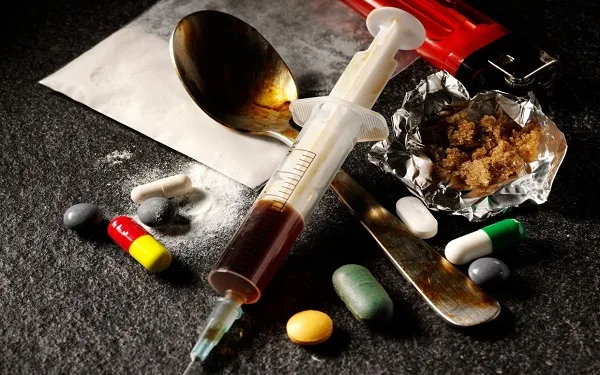North Macedonia ranks seventh in the world according to the Global Drug Policy Index, in a classification that includes 30 countries. The country shares the seventh place with Georgia with a same number of index points, and ahead of them are Canada (6), Australia (5), Great Britain (4), Portugal (3), New Zealand (2) and Norway (1). Of the European countries that have worse rankings than North Macedonia are Hungary in 12th place and Russia in the 20th place.
– This seventh place should not be seen as a success for North Macedonia, which was assessed with 55 out of 100 possible points. In any textbook, the index 55 is not assessed as a good performance. Especially if one takes into consideration also the group of countries that were evaluated, of which the greater part is known for their bad drug policies. This index should be read in the direction that the Macedonian Government and institutions have much more work to do on creating an appropriate drug policy that will be based on health and human rights, is said from HOPS – Healthy Options Project Skopje.
Therefore, in pointing out the key facts on North Macedonia in the first edition of Global Drug Policy Index, they have outlined that in five of the 30 countries included in the classification (Brazil, Columbia, Kyrgyzstan, Mexico and North Macedonia), the involvement of the military or special security forces in drug control operations is perceived as “endemic for the country’s approach to drug law enforcement”.
– It is worrying that widespread violations of human rights are emphasized in the data of the Index, committed in the name of drug control within the criminal justice apparatus, including also violence and torture executed by the police and arbitrary arrests and detentions, during which only a small number of countries have reported that these are rare occurrences. In Afghanistan, Kenya and Kyrgyzstan, for example, police violence is considered to be widespread in the efforts for drug control, while it is considered as a rare and very rare occurrence in only six countries (Costa Rica, Hungary, New Zealand, North Macedonia, Norway and the United Kingdom). Similarly, cases of arbitrary arrest are considered rare in only three of the 30 countries – New Zealand, Portugal and the United Kingdom.
In terms of the right to fair trial for persons suspected of drug-related offenses, according to the Global Index, the possibility of being guaranteed a fair trial is considered unlikely in Afghanistan, and North Macedonia is in the group of 12 countries with significant restrictions in access to a fair trial, along with Georgia, Ghana, Kenya, Kyrgyzstan, Mexico, Morocco, Mozambique, Nepal, Russia, Thailand and Uganda. Access to a fair trial is considered as being guaranteed only in seven countries: Australia, Canada, Costa Rica, New Zealand, Norway, Portugal and the United Kingdom. The index evaluates performance of governments in regards to availability and use of alternatives to arrest, prosecution, conviction and/or punishment for drug-related offenses. Australia, Jamaica, New Zealand, North Macedonia and Portugal received the highest scores (85/100) in the provision of alternatives to arrest, prosecution, conviction and/or punishment, while the lowest ranking are Columbia, Georgia, Kenya, Morocco, Mozambique and Uganda.
– Only nine countries, including North Macedonia, along with Australia, Costa Rica, Jamaica, Kyrgyzstan, Mexico, New Zealand, Portugal and Russia have offered alternatives in all three phases (arrest, persecution, conviction and/or punishment. Even more worrying is that only 11 countries offer a series of options for treatment based on people’s needs and preferences (Afghanistan, Australia, Canada, Ghana, Hungary, Jamaica, New Zealand, North Macedonia, Portugal, Senegal and the United Kingdom), adds HOPS.
Only one country (Canada) has a provision for implementing sterile needle and syringe exchange programs in prisons, even though coverage is very limited. 15 of the 30 surveyed countries provide OAT (Opioid against treatment) in prisons, but in practice only three countries (North Macedonia, Portugal and the United Kingdom) have provided access to Opioid Against Treatment for more than 40 percent of people who use drugs in prison.
The first edition of the Global Drug Policy Index that was released in November 2021 by the Harm Reduction Consortium, a coalition of civil and community associations, in partnership with academics, reveals that most countries in the world have not managed to harmonize their national drug policies with the recommendations of the United Nations. They are sending urgent appeals to governments, for reforms in this area to be their priority.
The Global Drug Policy Index is the first global analyses based on evidence of global drug policies and their implementation. It consists of 75 indicators that cover five broad aspects of drug policies: criminal justice system, extreme responses, health and harm reduction, access to internationally controlled medicines, and development. Through this prism, this unique and first such tool so far, documents, measures and compares national drug policies, ranking each country with a score. This system shows how much drug policies of a country are in line with the United Nations principles of human rights, health and development. As such, this Index is a basic mechanism for evaluation in the field of drug policies.
The first index evaluates the achievements of 30 countries in the world, covering all regions in the world, including North Macedonia, and additionally includes real, life stories.
The Global Drug Policy Index is a project of the Harm Reduction Consortium, which includes the following partners: the European Network of People Who Use Drugs (EuroNPUD), the Eurasian Harm Reduction Association (EHRA), the Eurasian Network of People who Use Drugs (ENPUD), the Global Drug Policy Observatory (GDPO) / Swansea University, Harm Reduction International (HRI), the International Drug Policy Consortium (IDPC), the Middle East and North Africa Harm Reduction Association (MENAHRA), the West African Drug Policy Network (WADPN), the Women and Harm Reduction International Network (WHRIN), and Youth RISE
Translation: N. Cvetkovska

